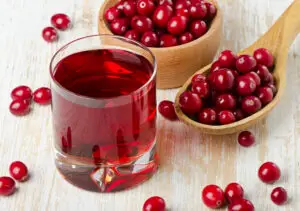Pickled beets have gained popularity not just for their tangy and sweet taste, but also for the potential health benefits they offer. While the health advantages of beets and beet juice have been extensively researched, pickled beets have not been studied as much. However, there is evidence suggesting that they provide a range of valuable nutrients that can contribute to overall well-being.
One of the main health benefits of pickled beets is their ability to aid in blood pressure regulation. The nitrates found in pickled beets can be converted into nitric oxide, which helps relax and widen blood vessels, leading to a decrease in blood pressure. Additionally, pickled beets are a rich source of vitamins and minerals, including potassium, magnesium, and vitamin C, despite the small loss of nutrients caused by the pickling process.
Furthermore, pickled beets can also serve as an energy source, containing 19 grams of carbohydrates per half cup. This makes them suitable for athletes who need to enhance their training capacity, as well as for those who require a boost in energy for their brain, heart, nervous system, and kidneys. So, incorporating pickled beets in your diet can be a delicious and nutritious way to support your health goals.
What Are Pickled Beets
Pickled beets are a popular preparation of beets, a nutritious root vegetable known for its vibrant red colour and numerous health benefits. Beets are rich in antioxidants, vitamins, and minerals and have been linked to various positive effects on health, which can be retained even when the vegetable is pickled.
Pickling is a preserving method that typically involves immersing beets in a mixture of vinegar, salt, sugar, and spices. This process not only enhances the flavour but also increases the shelf life of the root vegetable. The pickling process helps beets maintain their valuable nutrients, namely antioxidants, flavonoids, and nitric oxide, as well as vitamin C, manganese, and B vitamins.
There are several health benefits associated with the consumption of pickled beets. Firstly, they contain essential nutrients like vitamin C, which supports the immune system, and manganese, which contributes to bone health and the metabolism of nutrients. B vitamins found in pickled beets are also helpful for maintaining energy levels, producing DNA, and regulating the immune system.
Some studies suggest that pickled beets may even have the potential to help protect against cancer, thanks to the probiotic Lactobacillus plantarum found in them. The vegetable is also low in calories, fats, and proteins, making it a great addition to weight-loss diets.
Pickled beets can also contribute to enhanced brain health, improved blood sugar management, and reduced inflammation5. Furthermore, they are thought to have a positive impact on digestion and promote cardiovascular health.
In conclusion, incorporating pickled beets into one’s diet may offer multiple health benefits due to their rich nutrient profile and numerous beneficial compounds.
Nutritional Profile of Pickled Beets
Pickled beets are a tasty and nutritious addition to a healthy diet, providing a range of essential nutrients. Though the pickling process slightly diminishes some of the nutrients, pickled beets remain a rich source of vitamins and minerals.
A half-cup of pickled beets contains approximately 55 to 74 calories, making them a low-calorie option for those looking to manage their weight. They have an almost negligible amount of fat and protein, making them a suitable choice for individuals following a low-fat diet.
In terms of vitamins and minerals, pickled beets are particularly rich in potassium, a vital electrolyte that helps regulate blood pressure and supports proper muscle function. They also provide moderate amounts of calcium, magnesium, manganese, and iron, which are essential for maintaining strong bones, energy production, and overall health.
Fibre is another key component found in pickled beets. It supports healthy digestion, aids blood sugar control and can contribute to a feeling of fullness, further supporting weight management goals. Moreover, pickled beets provide a decent amount of water, which is essential for maintaining proper hydration levels.
Besides being low in calories, pickled beets are a good source of essential nutrients such as vitamin C and folate. Vitamin C is an antioxidant that supports a healthy immune system, while folate contributes to red blood cell formation and supports prenatal health.
Carbohydrates are the main source of energy in pickled beets, with a half-cup serving containing around 13 grams. However, it is important to note that some commercially-canned brands might have added sugar and salt, which could alter their nutritional profile. Therefore, it is worth checking labels for added sugars and sodium content when choosing which pickled beets to consume.
In summary, pickled beets offer a range of essential nutrients, vitamins, and minerals, making them an excellent addition to a balanced diet. They are low in calories, fat, and protein, while providing beneficial fibre, potassium, vitamin C, and folate. Just remember to check labels for added sugars and sodium when selecting a brand to ensure you are making the healthiest choice for your needs.
Health Benefits of Pickled Beets
Pickled beets are a nutritious and tasty food option known to provide a range of health benefits. They are rich in essential nutrients such as vitamins, minerals and antioxidants, which contribute to overall health and well-being. One of the key benefits pickled beets offer is their anti-inflammatory properties. These come from compounds called betalains, which help reduce inflammation in the body.
Nitric oxide production is another benefit associated with the consumption of pickled beets. This compound helps to dilate blood vessels, thereby lowering blood pressure. High blood pressure, or hypertension, can lead to heart disease and stroke, so incorporating pickled beets into a balanced diet can contribute to better heart health.
Furthermore, pickled beets are a good source of nitrates, which are converted into nitric oxide in the body. This is essential for maintaining healthy blood vessels and promoting proper blood flow. Nitrates have also been linked to improved exercise performance, which may be particularly advantageous for athletes.
In terms of disease prevention, pickled beets may play a role in reducing the risk of certain types of cancer. They are rich in antioxidants, which help neutralise harmful free radicals and protect the body’s cells from damage. This, in turn, can lower the risk of developing chronic diseases such as cancer and type 2 diabetes.
Immune system support is another potential benefit of consuming pickled beets. Their high nutritional content, including essential vitamins and minerals, contributes to a stronger immune system. A strong immune system is vital for warding off infections and diseases.
The brain may also benefit from the consumption of pickled beets, as some research suggests that they can help support cognitive function. This is primarily due to their ability to increase blood flow to the brain, which promotes the delivery of oxygen and nutrients to brain cells. Moreover, the antioxidants present in pickled beets can help protect the brain from the harmful effects of inflammation.
Lastly, pickled beets may help prevent kidney stones. They contain oxalates, which bind to calcium and reduce the risk of crystal formation. By incorporating pickled beets into a balanced diet, individuals may be able to reduce their likelihood of developing uncomfortable and painful kidney stones.
To summarise, pickled beets offer a variety of health benefits due to their rich nutrient content and anti-inflammatory properties. Consuming them as part of a balanced diet can promote heart health, support the immune system, and even reduce the risk of certain diseases.
Pickled Beets and Digestive Health
Pickled beets contain the probiotic Lactobacillus plantarum, which plays an essential role in promoting digestive health. Probiotics are live bacteria that provide numerous health benefits, particularly for the digestive system. They do so by supporting the natural balance of good bacteria in the gut, thus maintaining a healthy digestive system.
Furthermore, pickled beets are known to aid digestion by providing dietary fibre. This fibre helps regulate bowel movements, reducing the risk of constipation and bloating. A well-functioning digestive system is vital to maintain overall health, as it is responsible for breaking down the food we eat and making its nutrients available to the body.
In addition to their impact on digestion, pickled beets may also help individuals with inflammatory bowel disease (IBD). The anti-inflammatory properties found in pickled beets can help soothe intestinal inflammation often experienced by those with IBD. By reducing inflammation in the digestive tract, pickled beets potentially contribute to improved gut health and a reduction in IBD symptoms.
To summarise, pickled beets serve as a beneficial addition to a healthy diet, particularly when it comes to digestive health. Their probiotic content supports the balance of good bacteria in the gut, while dietary fibre aids in regular bowel movements. Moreover, the anti-inflammatory properties of pickled beets may prove beneficial for individuals with inflammatory bowel disease.
Role in Weight Management
Pickled beets can be a valuable addition to a weight management plan, as they are low in calories and a good source of dietary fibre. A serving of 100 grams contains only 65 calories, making them an ideal food choice for individuals aiming to reduce their calorie intake.
The dietary fibre found in pickled beets contributes to satiety, helping individuals feel full and satisfied for longer periods. This can ultimately assist in controlling portion sizes and preventing overeating. Additionally, the high water content in pickled beets, which makes up 82 percent of their composition, also plays a role in promoting a feeling of fullness.
Incorporating pickled beets into your meals is easy and convenient. They can be used as a flavourful topping for salads, which often serve as a staple dish in weight loss programmes. Combining pickled beets with leafy greens, lean proteins, and other nutrient-dense vegetables can create a filling and well-balanced meal.
It is worth noting that pickled beets can be relatively high in sodium due to the pickling process. However, consuming them in moderation and paying close attention to overall sodium intake can help mitigate any potential concerns in this regard.
In summary, pickled beets can play a beneficial role in a weight management plan due to their low calorie content, high dietary fibre, and versatility in meal preparation. By incorporating them wisely into a balanced diet, individuals may find a helpful ally in their weight loss journey while also enjoying the unique taste and texture of this colourful vegetable.
Pickled Beets and Athletic Performance
Pickled beets can provide several benefits when it comes to enhancing athletic performance. For athletes looking to boost their physical capabilities, incorporating pickled beets into their diet may prove advantageous.
One of the primary reasons for the positive effects of pickled beets on athletic performance is the presence of nitrates. Nitrates are found in large amounts in pickled beets and can improve blood flow by dilating blood vessels. This enhanced blood flow can subsequently help deliver more oxygen and nutrients to the muscles during exercise, thereby improving physical performance.
Furthermore, pickled beets are moderately high in carbohydrates, containing 19 grams per half cup. Carbohydrates play a crucial role in fueling the brain, heart, nervous system, and kidneys. Athletes can benefit from this, as carbohydrates can enhance their training capacity. In fact, the British Journal of Sports Medicine recommends consuming 30 to 60 grams of carbs per hour while exercising to maintain blood glucose levels.
Additionally, research has shown that consuming pickled beets before exercising can lead to an increase in endurance. In one study, participants who consumed pickled beets prior to exercising were able to exercise for longer durations compared to those who did not consume the beets.
Moreover, the nitrates present in pickled beets may also contribute to increased mitochondrial efficiency. Mitochondria are known as the powerhouse of cells, responsible for producing the energy necessary for cellular functions. Improved mitochondrial efficiency can further elevate energy production, promoting increased endurance and overall athletic performance.
In conclusion, pickled beets can offer various benefits to enhance athletic performance. By incorporating them into their diet, athletes can potentially boost their endurance, improve blood flow, and increase energy production to achieve their optimal physical performance.
How to Incorporate Pickled Beets in Your Diet
Pickled beets are a versatile and nutritious addition to your diet. They’re rich in essential nutrients, such as vitamin C, vitamin B, iron, and folate, which contribute to overall health and well-being1. There are numerous ways to incorporate pickled beets into your meals, making it easy to enjoy their benefits. This section offers several suggestions for adding this tasty and healthy ingredient to your daily routine.
One simple way to incorporate pickled beets into your diet is by using them as a topping for salads. Their tangy flavour pairs well with a variety of greens and other ingredients, such as nuts, cheese, and fruits. Pickled beets add a pop of colour, unique taste, and extra nutrients to any salad.
In addition to salads, pickled beets can be blended into smoothies and juices. Beet juice, in particular, is known for its potential health benefits, such as supporting healthy blood pressure2. Mixing chopped pickled beets with other fruits and vegetables creates a delicious and nutritious drink, which can be enjoyed as a refreshing beverage or post-workout recovery fuel.
Pickled beets can also be added to soups or served as a side dish. They provide a zesty, tart contrast to the milder flavours of boiled or roasted vegetables. You can also serve pickled beets alongside other pickled or fermented foods, such as sauerkraut, olives, and pickles. This creates a colourful and flavourful platter that can complement a variety of main courses.
For those who prefer to cook with beets, there are countless recipes to explore. You can include pickled beets in dishes like stews, pasta, and grain-based salads. Their unique flavour profile adds complexity to cooked dishes, while their rich nutrients remain intact.
Finally, pickled beets are easy to find in grocery stores, often located alongside other pickles and condiments. They are readily available for purchase both online and in physical shops. If you have fresh beets at home, you can even try making your own pickled beets, allowing you to control the ingredients and experiment with different flavour combinations.
Incorporating pickled beets in your diet is a simple way to diversify your menu and boost your nutrient intake. With options ranging from salads, juices, soups, side dishes, and recipes, there are countless opportunities to enjoy the taste and health benefits of this versatile ingredient.
Possible Side Effects of Consuming Pickled Beets
Pickled beets have numerous health benefits; however, it is essential to be aware of potential side effects. Consuming beets in their pickled form may raise some concerns due to the presence of certain compounds, such as salt, vinegar, and oxalates.
One possible issue is the high salt content in pickling brine. A diet high in sodium can lead to increased blood pressure and other cardiovascular issues. When consuming pickled beets, it is important to watch overall sodium intake.
Vinegar, another component of pickling, can be a concern for people with acid reflux. The acidity of vinegar might exacerbate symptoms for those with this condition. Despite this, the fermentation process associated with pickling also provides probiotic benefits that may improve gut health.
Oxalates are naturally occurring compounds found in beets and other vegetables. In some individuals, consuming high amounts of oxalates can increase the risk of developing kidney stones. It is crucial for individuals prone to kidney stones to monitor their oxalate intake, which includes limiting their consumption of pickled beets.
Copper and flavonoids are present in beets and have antioxidant properties that combat free radicals responsible for cellular damage. However, excessive amounts of copper can cause gastrointestinal issues and even liver damage. Maintaining a balanced diet that includes pickled beets in moderation is important for reaping the benefits without overexposure to potentially harmful compounds.
In conclusion, while pickled beets provide numerous health advantages, it is vital to consider the potential side effects associated with their consumption. By being mindful of the presence of compounds such as salt, vinegar, and oxalates, and maintaining a balanced diet, individuals can enjoy the benefits of pickled beets without risking adverse effects.
Conclusion
Pickled beets, a popular vegetable dish, offer numerous health benefits due to their rich nutrient content. They provide energy, aid in blood pressure regulation, and may help reduce the risk of chronic diseases such as heart disease, cancer, and Alzheimer’s.
Being moderately high in carbohydrates, pickled beets help fuel one’s brain, heart, nervous system, and kidneys1. Athletes can also benefit from incorporating pickled beets into their diet as the carbohydrates can enhance their training capacity.
Nitrates in pickled beets, which are converted into nitric oxide, help relax and widen blood vessels, consequently leading to a decrease in blood pressure. This vegetable dish can be a valuable addition to individuals seeking to regulate blood pressure levels.
Due to their high nutrient content, pickled beets may also contribute to reducing the risk of various chronic diseases. Their inclusion in a balanced diet can provide numerous health benefits while being a convenient alternative to fresh beets.
My name is Ellis Francis and I have been a personal fitness trainer, sports nutritionalist and health and fitness advisor for over 25 years. I am the lead health and fitness advisor at https://awellnessbody.com.







